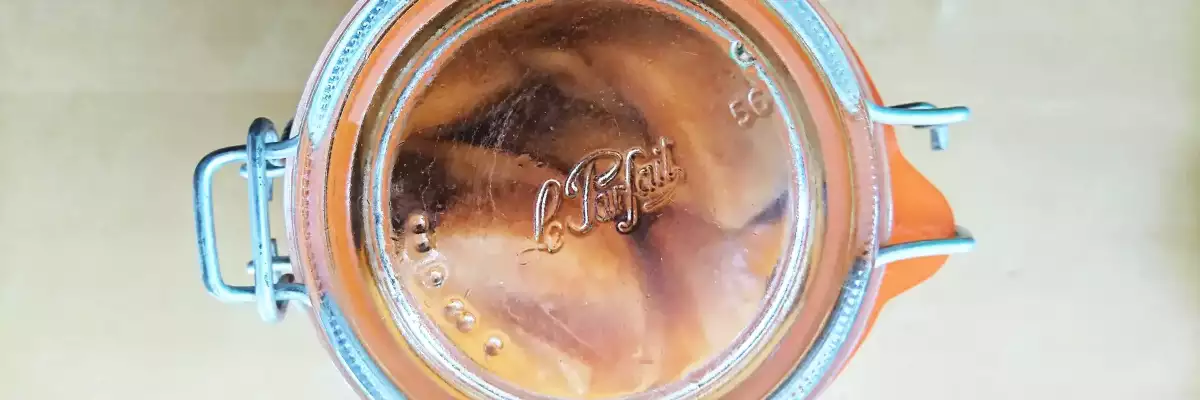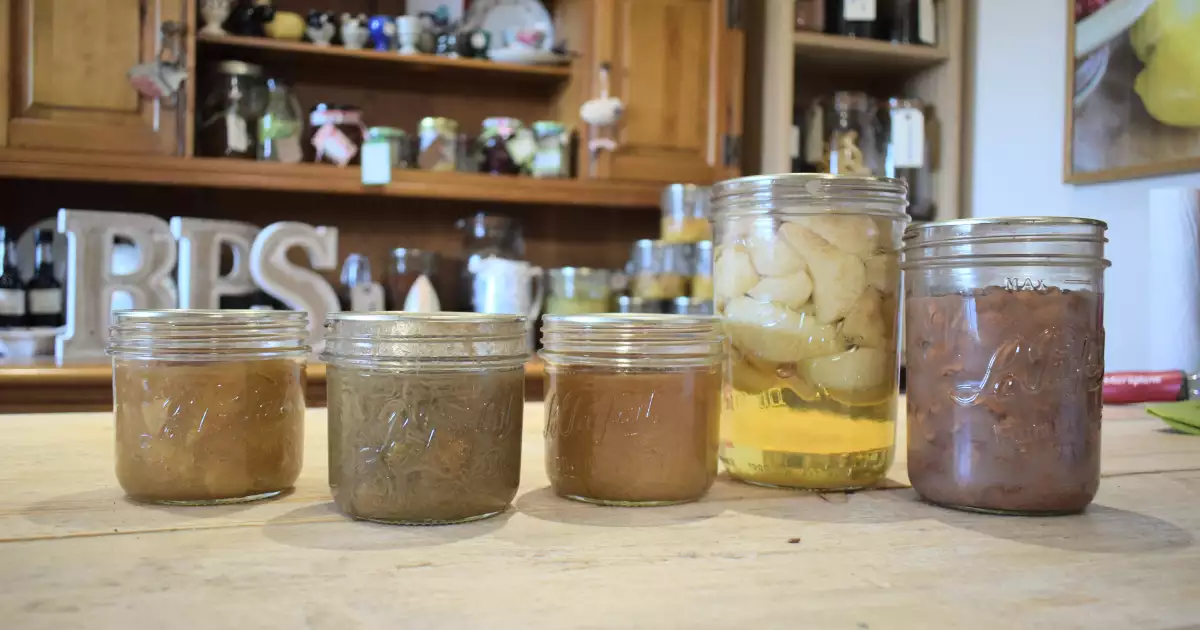So, You Are Thinking of Pressure Canning?
There are so many pressures (no pun intended) on us in modern life - family life, working life, money, time, and much more. There are many layers to all of these aspects - family life doesn't just mean children and spouse but aging parents who may need support and to some extent, friends. You need to ensure that nutrition, exercise, education, emotional needs are given priority - but which comes first? The answer always is, it just depends.
Working life may be in the home, remote, mobile, alone, with others, and has a myriad of priorities - it just depends.
Everything depends on available time and available funds and mostly there is never enough of either for most people. There is no shame in this but instead of the wasted energy of feeling hopeless and helpless it does make you feel a whole lot better if you take control. It may help to ready my Meal Planner blog which goes into this in detail.
One area of food preservation which is gaining traction in the UK also helps massively. Pressure Canning. The preservation of all food groups - meat, fish, vegetables primarily - to be shelf stable. Literally your own convenience foods available to eat more quickly than sending for a Take-Away.
To give an overview of the benefits I am going to go through ten reasons for giving this preserving method serious consideration.
Then I will tell you what you can do about it
My Top Ten Reasons to Start Pressure Canning
1. Convenience
Unlike frozen meals, pressure canned (PC) food is available immediately for reheating - no thawing or defrosting is necessary. This significantly cuts down the time of meal preparation and no thinking ahead to take things out of the freezer, before you go to work, for example.
2. Zero Cost Storage
Once processed, the storage of PC'd food long term incurs no further cost. The jars can stay on the shelf, (or under the bed, out in the garage, mostly wherever there is space) for the length of their life just waiting to be used. Unlike freezing which requires a power source which has a direct ongoing cost. It is also vulnerable - may experience power cuts for instance. There is a certain amount of jeopardy involved.
3. Freezer Space
Some things are more suited to freezing above any other method of food preservation - supplies of bread and other baked goods for instance. Freeing up this space and optimising how you store such items will radically change the choices that you have. Storing your own home-made mixes for example - crumble topping, dry pastry mix, dairy items, cakes gives you choice and variety. Store anything possible in large zip lock bags, flatten and expel air before the final zip. These can then be stored flat in the freezer drawer to create a significant amount of space and you can find things easily. Also store carcasses left over from roast chicken like this - you can press them flat in the bag. When you have collected 4-5 it is cost effective to simmer with onions, carrots, celery, herbs to make your own no-cost chicken stock for soup bases. The stock can be PC'd until needed and kept on the shelf.

4. Time Saving
Yes, sure, it takes time to prepare and pressure can the food that you want to preserve. The key is organisation - plan ahead, set aside time, accurately evaluate what can realistically be achieved in that time, plan to shop for it - and enlist other people to help if at all possible.
It probably is self-defeating to try to squash this into an evening after you have been at work all day - the only PC'd food you want to encounter then is what you are having for dinner! You will realistically need at least 2-3 hours, depending what you are processing, for the prep, filling the jars and sealing, processing in the canner and then the clearing up afterwards. If you can get help with any aspect of this then accept it gratefully - nobody loves a martyr. I also find that if others are involved they not only learn the process that benefits them, but also appreciate what they are eating when they eventually get to enjoy it. Everyone should learn and understand nutrition to stay healthy. Even quite young children can enjoy being involved and making labels for the jars, for example.
The greatest saving in time comes when you come in late from work, take a jar of something off the shelf and by the time you have checked in with the family the pasta has cooked and the bolognese sauce heated through. Grate some parmesan and you're done. No packaging to dispose of either!
5. Pressure Canned Food - Free Spirits!
Once you have made 2 or 3 different batches - or more - you build up choice. A variety of food that you can go to either for main meals or soups, or maybe the Inbetweeners, things like Ratatouille. All of them are portable so if you camp, caravan, sail or self-cater for holidays you can take ready meals with you so that you get a holiday as well! Soups and ratatouille are great for lunch at work - just add some grated cheese topping and you are done. No extra cost, no impulse buying in the sandwich store (crisps+cake+can!) Those things are so hard to resist and soon become a habit so you will be saving empty calories as well as money.
6. Eat the Food You Like
One of the big pluses of PC'd food is that you will be definitely be eating food that you like and that is familiar to you. If you have young children this is probably the biggest plus. How many families have been through the eating demands of a toddler who will only eat something in a particular way?
In my own scenario, many years ago, all of our food had to be made at home as my son had very bad asthma and along with that was allergic to many ingredients in modern foods. It seemed a lot of the time, that I never stopped cooking - meals, bread, yoghurt, ice-cream and lollies, cakes, biscuits, cordials. I had to mainly shop in health food stores (online wasn't available then) and if we went anywhere and food would be required - a simple day out - we had to take his food with us. How many times do I say now 'if only I had had a pressure canner when the children were small.'
7. Special Diets
As well as the specific scenario in point 6. above, nobody really wants to be eating chemicals and additives and then there are very specific dietary requirements such as gluten-free, vegetarian, allergies to something like onions which seems to be quite common recently. It would be perfectly possible to PC a batch of the regular recipe and then a batch adjusted for the special diet so that all members of the family can eat together without resorting to completely different meals for everyone.
If we look at the processing time in item 4. you might put aside 3-6 hours each fortnight for pressure canning meal ingredients. This may seem like a long time but in that time you may produce upwards of 35 portions of food. Each day during the week when you are time poor, you are going to save around 30 minutes prep time, along with regular trips to the store because you haven't planned what to have and rush in on your way home. You will save time on the cooking time, again on average around 30-45 mins. This all adds up to less energy used in actual cooking day-to-day, less impulse buying saving you cash, bulk buying for pressure canning days - more savings on cash, and above all in my book, less stress because you feel in control.

8. Economies of Scale
Just as with buying for a small business, buying for a small family can utilise the same principles.
Buy as big as you can as few times as possible to maximise discounts - not only with jars and ingredients, but cleaning products, dry ingredients, bathroom essentials - utilise My Pantry Notebook to keep shopping lists, inventories and use the Meal Planner Pages. Makes sure stocks are rotated and used in a timely fashion.
It used to be that great savings were only to be made by joining a Trade Warehouse. These days, many of the chain supermarkets can match or better the prices, and there are also very good offers on-line. Do you homework on prices and stock up when you can. Factor in having bulky items delivered - it will save you loads of time (therefore money) in preventing costly trips to the stores.
If you read my Meal Planning blog I explain in depth where savings can be made both in cash and time.
9. Stability
If you live remotely, off grid, or are just actively reducing your reliance on the National Grid power supply then PC'd food is the way to go. Shelf stable for years, the only power input required is to actually process the food.
No need to fear power cuts, reductions or outages - your food will be fine right there on the shelf.
Another point is if you have elderly relatives to cater for - or others who have limitations in their mobility you can supply them with a variety of nutritious meals to just heat up without resorting to supplying thawing instructions or ready meals.
Send students back to unit with their own store of home-cooked meals - no freezer required. They will probably be quite safe in the communal kitchen and not be raided - no-one else will know what to do with them! I am not suggesting that you supply them for a whole term but one or two nice things from home is always nice especially if money is tight.
10. Safety
I have recommended a book below that is suitable for beginners - I still use mine every time I pressure can. I make a point of not even trying to memorise recipes as there are so many variations to take into consideration - ingredients, jar size, timing, pressure levels - I check every time.
This is my comfort blanket - better to be safe than sorry!
SUMMARY
So that hopefully is enough to get you started on the right path, there is so much more to learn and to know but at least there are a few signposts.
RESOURCES
- Rosie's Preserving School - How-to Video Library
- Advice on Meal Planning Blog
- Advice on Store cupboard Organisation
- Our Pressure Canning information site - read this before buying anything
- Buy a good recipe book of everyday foods
The Complete Guide to Pressure Canning Diane Devereaux
ISBN 1641520906
HAPPY CANNING!

